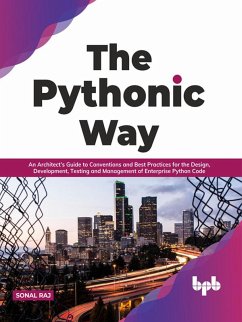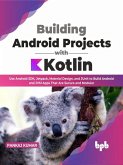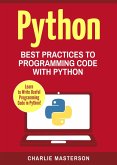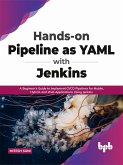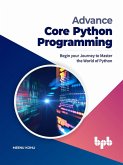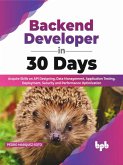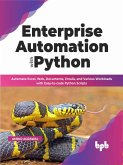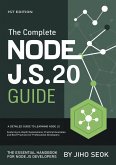KEY FEATURES
● Comparative analysis of regular and Pythonic coding constructs.
● Illustrates application design paradigms for Python projects.
● Detailed pointers on optimal data processing and application design.
● Highlights accepted conventions for testing and managing production code.
DESCRIPTION
'The Pythonic Way' acquaints you with Python's capabilities beyond basic syntax. This book will help you understand widely accepted Pythonic constructs and procedures, thus enabling you to write reliable, optimized, and modular applications.
You'll learn about Pythonic data structures, class and object creation, and more. The book then delves into some of Python's lesser-known but incredibly powerful functionalities such as meta-programming, decorators, context managers, generators, and iterators. Additionally, you'll learn how to accelerate computations by using Pandas Series and Dataframes. You will be introduced to various design patterns that work well with Python applications. Finally, we'll discuss testing frameworks and best practices for testing, packaging, launching, and publishing applications in production environments.
This book will empower you as you transition from beginner or competitive Python coding to industry-standard Python software development. Intermediate Python developers will gain a deeper understanding of the language's nuances, enabling them to create better software.
WHAT YOU WILL LEARN
● Understand common practices for writing scalable and legible Python code.
● Create robust and maintainable production codebases for time and space performant applications.
● Master effective data processing practices and features like generators and decorators to improve complex computations on large datasets.
● Get familiar with Pythonic design patterns for secure, large-scale applications.
● Learn to organize your project's code into modules.
● Familiarize yourself with different testing tools and frameworks.
WHO THIS BOOK IS FOR
This book is a valuable reference manual for novice and intermediate programmers and data scientists to learn about Pythonic standards and conventions. For beginners, this book will get you started with Pythonic thinking. This book will serve as a guide to fine-tune your skills beyond syntax and help build robust Python applications for intermediate Python coders.
AUTHOR BIO
Sonal Raj is an engineer, mathematician, data scientist, and Python evangelist from India, who has carved a niche in the financial services domain. He is a Goldman Sachs and D.E. Shaw alumnus who currently heads the data analytics and research efforts for a high-frequency trading firm.
He holds a dual master's degree in Computer Science and Business Management and is a former research fellow of the Indian Institute of Science. His areas of research range from image processing, real-time graph computations to electronic trading algorithms and data science. He is a doctoral candidate at the Swiss School of Business Management, Geneva. Over the years, he has implemented low latency platforms, trading strategies, and market signal models. With more than a decade of hands-on experience, he is a community speaker and a Python and data science mentor to newcomers in the field.
When not engrossed in reading fiction or playing symphonies on the piano, he spends far too much time watching rockets lift off.
Dieser Download kann aus rechtlichen Gründen nur mit Rechnungsadresse in A, B, CY, CZ, D, DK, EW, E, FIN, F, GR, H, IRL, I, LT, L, LR, M, NL, PL, P, R, S, SLO, SK ausgeliefert werden.
Hinweis: Dieser Artikel kann nur an eine deutsche Lieferadresse ausgeliefert werden.

